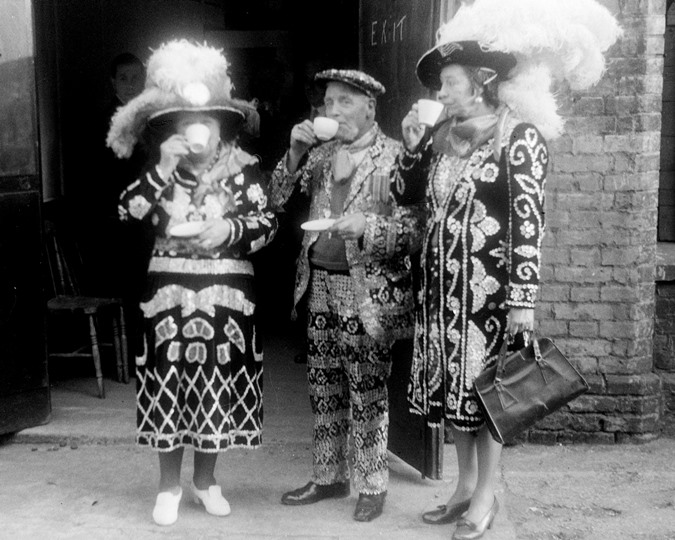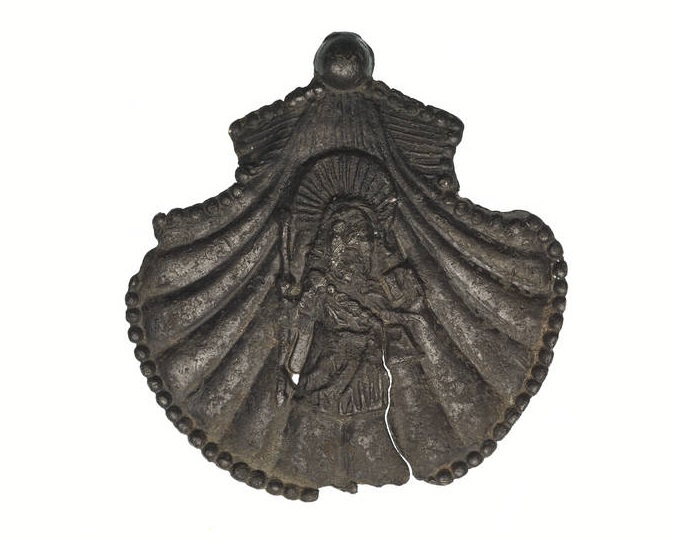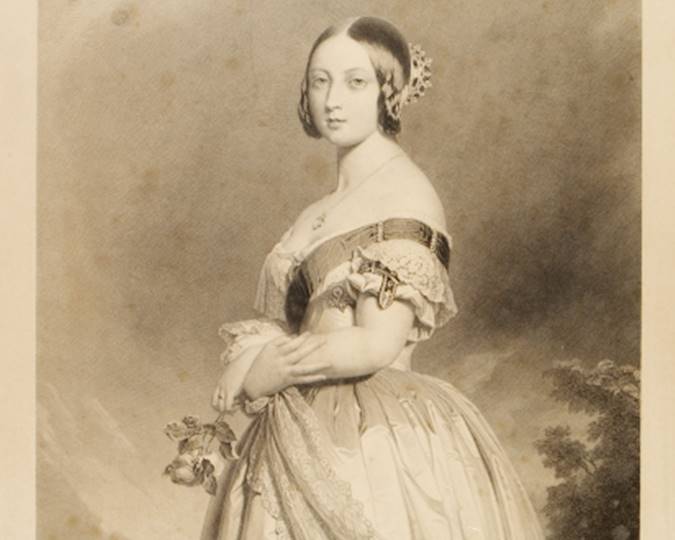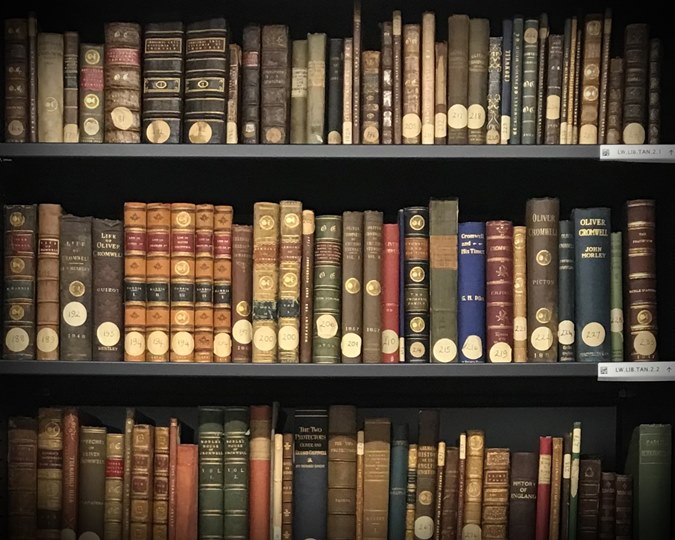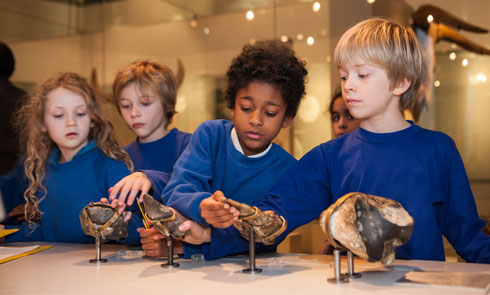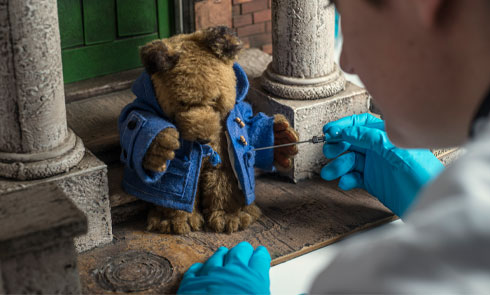Hear from dub reggae stalwart Tippa Irie in this interview with Dub curator Cedar Lewisohn.
CL: So, with Tippa Irie, it is the 9th of March.
TI: 9th March 2020
CL: Yeh yeh
TI: You sound like you are stressed man, you alright?
CL: Im alright, Im a bit stressed, im a bit stressed.
TI: Alright alright.
CL: Ok so thanks so much for agreeing to speak to me
TI: No problem, no problem
CL: And erm, yeh lets just start, lets just start by going through a little bit of your history
TI: ok
CL: How you came into sound systems really
TI: Ok, well, for me it was a kind of easy process because my dad was a sound guy and he had a love for the music from a very young age and he basically pushed that onto me. What happened was basically he used to have his sound system in the basement of our house because we used to live in Brixton and my dad was a shopkeeper. He had a corner shop and in the basement of the corner shop, we used to live ontop of the shop, and underneath the shop he used to have a shubbi every Friday and sat night he used to keep his little blues dance that was called shubbi back then. So basically on a Friday and sat he used to have people come down and play dominoes play ludi, you know, gamble, play cards and also rave, party. So he used to basically have his little set with his little valve amp, his little speaker, you know bass, mid range tops, in the room and basically I used to just go down there and watch my dad play sound system and then as a youth, you know what I mean, I wanted to have my own. So me and a few friends of mine there is a guy called Commander B who is on Vibes FM now but he was on Choice FM. As kids we started a sound system together called Younger Frontline, my dad’s sound system was called Musical Messiah. So basically it all started from my father. From there, I’m going to continue, from there, my cousin, he was friends with a guy called Mikey, Mikey. But he used to call himself Mikey Dread, not the original Mikey Dread but he used to call himself Mikey Dread so he had a sound system called Mikey Dread, you know, and it is called MJR Roadshow today. Basically I used to hook up with him and he was actually the cousin of King Tubby’s, yeh so, Cecil Renny who is the owner of King Tubby’s, he must have been to one of, King Tubby’s in England, yeh, not Jamaica, King Tubby’s in England. The King Tubby’s in England is the cousin of the original King Tubby’s in Jamaica, so he was started from Duke Reid, he was a box boy in Duke Reid and then he left Duke Reid, just like Lloyd Coxsone.
CL: So Cecil in London was King Tubby’s in London.
TI: Yes, King Tubby’s in London yeh. So basically after being on Mikey’s sound, Mikey brought me to King Tubby’s and then to show, you know showing my talent basically. Then I joined up with King Tubby’s.
CL: Where were they? Where was King Tubby’s?
TI: In south London
CL: That was in south London?
TI: Brixton yeh Brixton, all south this was all south London, Brixton.
CL: And when are we talking about?
TI: You’re talking about 1981, 1980, 81- 82 them times. And that was, I was around 15/16 you know 17. Then erm, yeh, so then I joined up with King Tubby’s and then that’s where my MC career kinda took off. So it kinda started from then, so really from my dad to Mikey Dread and then there was another sound called Sir Lloyd which was a more Blues sound, Lovers Rock sound and then from Mikey, King Tubby’s and from King Tubby’s to Saxon.
CL: What was your dad’s sound called?
TI: My dad’s sound was called Musical Messiah, yeh
CL: That was erm, what area was that?
TI: That was in South London, that was in south London. It was just, he didn’t really play out, he just played in the basement of our house
CL: ok
TI: you know what I mean and that’s where I basically got my training you know, basically listening to people like U-Roy, Big Youth, Dillinger, Dennis Alcapone, people like that, just fell in love with MCing, you know what I mean?
CL: Yeh
TI: And then I just started from there, I just continued and then after a while you kind of imitate these guys. And then you develop your own style and that’s basically what happened with me.
CL: and then you had the big move from Brixton sound to Saxon, yeh so Brixton to Saxon. So you moved from King Tubby’s London to Saxon.
TI: Yes South East
CL: This was a big, emotional move
TI: Yeh, it was a big ting at the time because obviously I was from Brixton, I was like one of the lead MCs from Brixton at the time so a lot of the people them in the area they didn’t want me to go to South east London and join up with Saxon. you know but Cecil was very, lets call it, strong willed guy. After a while, as an entertainer, you progress, first you know start lifting the boxes, then you get the opportunity to go on the mic and then you start making a name for yourself and then after a while you kinda want some kind of payment and at the time we wasn’t really getting much from Cecil. So Musclehead dem, they came and said, ah but Tip man, we really want you to come and join us you know, we will definitely pay you a little bit more than what they’re paying you. So I said, ok, let me go anyway because at the end of the day for me it was just another platform to get myself out there. So basically that’s what I did and erm, yeh, so I just linked up with Saxon
CL: Can you give me some more background about Saxon? Tell me, who was running it, why was it important?
TI: Ok. Well Saxon was started by a guy called Dennis Row and Lloyd Francis which is D-Row and Musclehead. They basically started the sound system. They had people like Maxi Preist, Papa Levi, Daddy Colonel all these guys and there was a few others
CL: You came in as an MC
TI: And I came in as an MC with Levi, Colonel. I brought Daddy Rusty with me from Brixton.
CL: What was he doing?
TI: He’s an MC
CL: OK
TI: Rusty, Daddy, Rusty, so it was like 5 of us – it was Tippa Irie, Daddy Colonel, Papa Levi, Rusty and Daddy Sandy then you had, you know, people like Miss Irie who was my little sister, God rest her soul. You had people like Simeon, obviously you had singers like Neville Morrison, Number One tune, you need to check him out. Roger Robin, sounds identical to Max, but even though its his natural voice, Maxi Priest and people like that and then you had people like Smiley Culture, Asher Senator, them people there was passing through as well. So it kind like, Saxon was kinda like an academy, you know what I mean, an academy for artists to go and express themselves. Basically it just grew and grew and the sound just blew up basically and all of the sound systems them, you know, wanted to play Saxon, you know what I mean? So from King Tubby’s to Saxon then to the Clashes, we used to play with all different sounds from Birmingham you had people like Jungle Man and Quaker City and up north sounds from Manchester like Byron. In Nottingham you had V Rocket, you know what I mean, and then obviously the sounds down here like Coxsone, Java, Volcano, all these sounds we used to play against you know.
CL: And, when was your, when did you do your first record? Did that come much later or?
TI: No, when I was 17
CL: And that was ‘Oh Darling’?
TI: No, that was ‘The Opposite’. It was called ‘The Opposite’ which was released on a label called LGR which is, Sir Lloyd, the same sound system that I told you that I used to, He was a blues dance sound selector, so my first sound was produced by Aswad. It was produced by Drummie Zeb and Tony Gad from Aswad, they built the track and yeh, so from there..
CL: How would you describe the track, like musically, what style of music would you say?
TI: It was Lovers Rock
CL: It was Lovers Rock?
TI: It was Lovers Rock, but obviously I gave it like a little bit of a cutting edge as an MC but erm the tune was called ‘My Valentine’. ‘My Valentine’ was the A-Side and my tune was called ‘The Opposite’, which was on the B-Side
CL: So you had a track on the B-Side?
TI: Yes, I had a track on the B-Side
CL: Just the B-Side?
TI: Yeh just the B-Side
CL: Who was on the A-Side?
TI: It was erm a guy called Tokes. His names Tokes and erm he sung the tune, ‘My Valentine’ and I was on the B-side, so that was my first record
CL: But that wasn’t a version? It was a totally independent
TI: Total independent song on the other side
CL: So is was like a double A-Side record?
TI: It was like a double A-Side yeh
CL: Cool, so what happened next?
TI: Yeh I mean well from there, we did ‘My Valentine’ and then I was on the B-Side with ‘The Opposite’ and then he done a series of live recordings which was called DSYC. And urm, it’s basically Dick Sheppard Youth Centre. So he did volume 1, 2 and 3, so basically he put out those live albums. So those were my next releases and erm he erm he had people like me and General Slater, who was another MC. And then you had Papa Levi and Peter King who was on Saxon. Then you had Ricky Rankin and Lorna G, they were on Taurus and then you had Champion and General T and they were on Jamdown Rockers so basically and you had Lefty B who was representing Taurus, so you had, basically it was a live recording of all of these different sounds and their MCs so those were my next releases and then after that it just erm, I started, Saxon started to get bigger and bigger, so all of the record labels became interested in the artists that were on the sound. So you had, erm, Greensleeves, they signed Tippa Irie, Papa, no, they signed Tippa Irie, Daddy Colonel, Daddy Rusty and Sandy and then Virgin signed Maxi Priest. Island Records, they signed Papa Levi, you know, and so, you know the sound just blew up from there.
CL: Papa Levi, ‘Mi God Mi King’?
TI: Yes, yeh yeh
CL: That was on, that was on Island?
TI: Yeh that was Island, yeh yeh, in Jamaica that was released by Sly and Robbie
CL: Taxi TI: Taxi Gang
TI: Yeh yeh
CL: Ok ok
TI: So that went to number one in Jamaica
CL: So you already had a record out, you had a couple of records out at that point?
TI: Well yeh, my first, yeh, well before Greensleeves it was Sir Lloyd so I did ‘The Opposite’ and the live recordings
CL: Yeh
TI: and then my first record for Greensleeves was Tippa Irie and the Colonel, ‘Just a Speak’. So this was, your looking around like 80, late 83/84, and so, yeh Tippa Irie and the Colonel ‘Just a Speak’ and then
CL: Your still, sorry, go on
Ti: Yeh, go on
CL: I was just, but you’re still all Saxon at that point
TI: Yeh
CL: You’re still all Saxon but just on different labels.
TI: Yeh yeh yeh yeh yeh,
CL: But all Saxon
TI: Yeh yeh yeh
CL: Ok
TI: Because I mean, obviously, Maxi was, starting to rise because he had a few hit tunes in the Reggae charts and obviously you had people like Smiley that got in the national charts but we, basically, when Saxon started to take off, like I said all of the labels became interested and so, we were still around the sound system even though we were startin to make records. We still would congregate 22 Overcliff Road, that’s where we would all meet up, Dennis Rowe’s mums house and we used to congregate there and write lyrics and smoke weed and do all the stuff what boys used to do and then erm, from there, what can I say, I mean…
CL: Alright let me ask you the next question then
TI: Yeh
CL: Because also what I think is so interesting about you, you and Smiley Culture mainly, that I know, that its more about the lyrics and how you did the lyrics, and the, the mixing of the kinda English, and
TI: And Cockney and Jamaican CL: and Cockney and Jamaican
CL: For me, that’s very important, historical thing really
TI: Well obviously, it’s plain and simple because our parents are Jamaican. I’m not sure where Smiley’s parents actually come from, I’m not sure if he’s from a small island or he’s from the carib…or if he’s from Jamaica, but my parents, obviously are Jamaican. So when you’re at home with your parents you speak deep Patois language and then when you’re out with your friends at school, you’re gonna speak the London twang. So basically, you know, Smiley was one of the first people that wanted to put the two together and at that time as MCs if somebody came up with something unique, a style that was original, creative, all of the other MCs would follow the style. So basically that’s what we done
CL: So Smiley invented that and you did it as well
TI: Yeh, yeh yeh yeh yeh
CL: Did it have a name?
TI: Well, I just, I guess it was, well, the song was Cockney Translation
CL: For sure
TI: You na what I mean, so...
CL: It didn’t really have a style, it wasn’t like ah
TI: Nah, it wasn’t really a particular name, I don’t think, I cant remember there being a name for that.
CL: Yeh alright
TI: but, it it, you know, that was basically what is was at that time, we, if anybody like Peter King, he kinda was the first one outta us lot to double time. Instead of talking it more relaxed he would double time so we called it speed rapping. So because Peter King came with that style everybody said, you know what, this style is wicked, I’m gonna do one. And Levi would do one and then Colonel would do one and that’s how we kinda fed off of each other.
CL: So was there a particular point where you started to do that London Patois style? Was there a particular track or?
TI: Yeh, well I mean, its like, with us its like, its everyday, it was everyday
CL: Were all your tracks like, early tracks? Coz I’ve not heard them, so they were all, they always had that? All way through?
TI: Some of them, yeh a lot of them, yeh, because it would do, because obviously that was how we spoke
CL: Yep, yeh yeh yeh
TI: Do ya know what I mean? Because like if I’m talking to my mum, I’m gonna talk to her in her native language but if I’m gonna talk to, to, my friend, my mate Neil, I’m gonna speak to Neil in a Cockney language, you know what I mean, because that’s how it was. So basically most of the songs, and we wanted to write lyrics all or be understood as well. So that’s why we used to chat lyrics and make them easy for people to understand, whether you be Black, White, Chinese, Indian, and I think that’s why it was so successful.
CL: Cool. So erm, what would you say it was, wha’s whats, what would you say next in the err, in the story?
TI: Erm, well I mean for me, its like, I mean obviously from King Tubby’s to Saxon and then it was going on to making records.
CL: So then you kind of blew up in a sense?
TI: Yeh, and then, so, the tunes with Sir Lloyd was just like the beginning and then obviously because Saxon was so successful we did, you know, we did that live recording you know, so basically Chris Cracknell got all of the MC’s that were on Saxon, together, to do a live recording. And that live recording was called ‘Coughing up Fire’, you know what I mean, so ‘Coughing up Fire’ now was released in 1984 and that blew up because it was like erm, it was basically like a blueprint of what used to go on, in the dances, yeh. So you had the 5 MC’s you had a thousand people in a venue that was sold out and us just on the mic chatting over classic riddims. So when ‘Coughing up Fire’ came out it just blew up even more and then our careers just started to take off, you know erm. So, for me, you know, I did Tippa Irie and the Colonel, then I did, ‘Good to Have The Feeling You’re The Best’, and then Smiley came out with ‘Police Office’, which went straight into the national charts and then I came out with a ‘Complain Neighbour’ after that which was basically talking about the noisy neighbours complaining about us playing erm, music. And then, from there, you know, ‘Hello Darling’ came and then that’s what changed my life internationally, because…
CL: Yeh yeh, those were all on Greensleeves?
TI: yeh, yeh yeh, these were all on Greensleeves, UK Bubblers
CL: UK Bubblers, yeh that’s right
TI: And that was kinda like the label that Greensleeves set up for UK artists, yeh?
CL: Yeh yep yeh.
TI: So, erm, yeh ‘Hello Darling’ came out and went straight to number 1 in the reggae charts. And then erm, Kid Jensen from Capital he heard ‘Hello Darling’ in a club and said that this tune needs to be on Capital, and he started to play it and then it went straight, it went to about 22 in the national charts and then my career just kind of blew up from there.
CL: I thought it was interesting what you said in the talk I heard you do in Lewisham where people were talking about ‘Mi God Mi King’
TI: Yeh
CL: Being a kind of serious Rasta thing
TI: Yeh yeh yeh
CL: and ‘Hello Darling’ was
TI: Was more lightweight?
CL: Yeh, well yeh
TI: Well I mean, for them times, its like, obviously Levi was like, a Rastaman, you na what I mean, and he was a radical person so he used, he used to speak about you know matters and serious matters and things that were going on and lick out against, you know, and just basically stand up for our people, basically and that’s all what he was doing. You know, and, there’s nothing wrong with that because it was needed, you know what I mean, but for me as well as an artist, I just see myself as an artist and I’m still learning, trying to get myself out there, and basically, that’s what I did.
CL: No that’s cool, so erm, so what was it like? What was it like having this number, how old were you when you had those hits?
TI: Well I was 19
CL: Right
TI: na what I mean? 19 years old so for me to go on Top Of The Pops it was a big thing
CL: Must have been
TI: It was a big thing for us because at the end of the day there wasn’t many Black people on TV period.
CL: Yeh
TI: So for somebody from South London that come from nothing, you know, our family, we used to have one room and then my dad worked his way up and got himself a cornershop and whatever, so to come from not having nuttin and then straight away you know you get a tune and you’re on Top Of The Pops with, you know, a lot of pop artists that you normal watch on TV. You know it was a big thing for the community and it was a big thing for Black people in general so yeh it was a amazing time. I mean even the whole Saxon experience was amazing coz it was like Beatle mania, you know what I mean we, everywhere we went was sold out. You know what I mean, and people made a lot of money off of us, people exploited us.
CL: For sure, yeh yeh yeh yeh yeh. So erm, obviously my project its called Dub London…
TI: Yes
CL: but its looking at more of a broad overall…
TI: broad…of the music
CL: timeline of the music in a way… TI: Yeh, yeh
CL: But would you say that you relate to Dub in particular or what’s your definition?
TI: Well, yeh yeh, I mean, its like, its reggae music you know what I mean, so from its reggae music, I mean I’ve worked with Mad Professor you know what I mean. Which is Ariwa, who’s one of the main Dub people in the UK. I’ve done an album for him called ‘Rebel on the Roots Corner’, and the concept of the album is, is, is the lyrics and then, after my lyrics are finished, the album, the part two will be played which he dubs out. So if you check out the album called ‘Rebel on the Roots Corner’ you will see what I’m talking about. And you know, I did shows with Lee Scratch Perry urm Adrian Sherwood, you know, a lot of the guys them, Channel One, Iration Steppas I’ve done dub for all, you know, so basically being an MC you know, I’ve worked on a lot of these sounds, and worked on a lot of these producers so for me its just a simple, natural.
CL: So it’s not a big separation for everybody?
TI: Nah, nah nah, I mean
CL: That’s good
TI: I mean at the end of the day you got different genres you know, I’m sure there’s dance, there’s there’s different there’s dance music and there’s different types of dance music and Reggae music is the same philosophy you have, you have the heavy Dub, like what, Aba Shanti, Channel One, Iration Steppas, you know, Jah Tubby’s and then you have Rub–a-Dub which is like more King Tubby’s you know what I mean, of today, and then you got the sound like King Tubby’s, Saxon, Coxsone, you know what I mean. Then you’ve got more like the Dancehall fraternity which is like, I dunno, Chris Goldfinger, dunno if you remember him from Asher World, Seani B, people like that that are playing the more up tempo Dancehall. Then you have Lovers Rock, which is like the Janet Kay, Caroll Thompson, Sandra Cross, Peter Hunnigale, Lloyd Brown there’s all of these artists that are very good artists that are out there as well. So there’s different little pockets of the music but it’s still all under one umbrella.
CL: Yeh
TI: In my opinion
CL: That’s good, that’s good… What next, what next? You know, so what happened after the whole Top Of the Pops era? So you still, stayed all the time still Saxon?
TI: Yeh. Well yeh for me it’s like obviously you get, once you get into the mainstream it’s a different ball game, so you, so Im getting requests to go out and do shows all over the world
CL: Yeh
TI: And then basically, when ‘Hello Darling’ took off that’s when I started to travel coz the name of my album was called ‘Is It Really Happening To Me?’ Taking aeroplane like it a taxi, you know what I mean? So basically, what I did I started to do the festivals, like Reggae Sunsplash, DJ ?? in Jamaica, they called me to go to Jamaica to do Sunsplash and things like that, and then it was just like that all over the world. So wherever, I started to go on tour with people like Gregory Issac and people like that, so it just kinda basically blew up for me but also, I still had the love for the sound system because that’s where I started. So I basically still worked with the sound, you know, so I would do my shows and then come back and do the sound as well
CL: Did you do some stuff with Fashion Records as well?
TI: Yes I did.
CL: What was, tell me about that.
TI: I did urm, them two brudders there mmm
CL: Was it Chris Lane
TI: Chris Lane, and John MacGillivray, two of the nicest people
CL: That’s the Dub Vendor
TI: Dub Vendor yeh, so I did a number one tune for them called ‘Superwoman’, which was a cover of a Karen White tune, which I did with Winston. And then I also did an album called ‘JA to UK’ with Papa San. So that was basically me and Papa San on the same riddims but different lyrics, obviously. So I did an album and a few, couple of singles for Fashion.
CL: Cool, so erm, did you leave Saxon at some point?
TI: Well yeh, I mean after a while as time goes on you move on you know, and you know, people have differences of opinion. After a while I met this guy, from Birmingham called Grantley, GT, and urm he used to manage me and Pato Banton and when I met GT, that’s when I kinda moved on from Saxon coz they didn’t really want me to do that but, I had to think of myself basically, that’s the long and short of it, so When I linked up with GT, I started to, I did, I did, ‘Is it really Happening For Me’ with Greensleeves and he started to manage me at that time when I got the deal with Greensleeves, so, he helped me set up my publishing company Lift Money and erm, I did an EP on Greensleeves with Pato Banton we had a tune called ‘Tippa Boogie’, ‘Funky Chicken’, ‘Walk on the Spot’, all these tunes me and Pato dun together on Greensleeves and erm. Yeh so then after a while you just, you know I had to move on from Saxon basically and started to do, just focus on the Tippa Irie brand and basically that’s what I did. You know but in saying that I still, you know you go, you move away but theres certain things that bring you back to the sound system because certain people wanna do a special event so there was special events that happened where I would come back and we’d all link up together and do something. But you know its like anything in bands, to keep 10 people together and all thinking on the same wavelength is very difficult so after a while people started to fall out, have difference of opinions and everyone just went their own separate ways.
CL: Yeh for sure, I mean I’ve been speaking to someone recently as well about Soul II Soul and I’m not sure if Soul II Soul play, this is their pitch, that Soul II Soul were the first sound system to kind of make it, to kind of go forward like you did but to stay as a sound system.
TI: Ok
CL: You know what I mean, to go on Top of The Pops, as a sound system. Not sure if that’s true or not? Because I think Saxon kinda did it but you were Tippa Irie
TI: Yep
CL: Smiley was Smiley, they weren’t, it wasn’t Saxon
TI: That’s right, yeh yeh yeh.
CL: So it might be true, I dunno. I spoke to Dennis Bovell, he said, he agreed with it so, dunno, it’s an interesting claim though
TI: Nah yeh, its probably
CL: Maybe
TI: Its probably because, I guess its Soul II Soul, but you know really, it’s Karen White, Karen, Karen Wheeler, she was the voice you know what I mean but you know, so I dunno
CL: Yeh its whatever
TI: Yeh
CL: But it’s interesting just in relation to sound system culture and what point does it you know, coz you could say Coxsone in Jamaica did it as well right?
TI: Yeh well if you think about it right you got sounds like Saxon and all of these different artists came from the sound but if you’ve got, its like a Motown thing, do you know what I mean, and Saxon was kinda like that but obviously Berry Gordy was obviously an intelligent man and I cant say the same about Musclehead and Dennis Rowe and its like..
CL: you get to a certain stage but how do you maintain it.
TI: That’s right
CL: And even move forward to the next level,
TI: Forward, that’s right and the times that we had a manager that used to work with Soul II Soul too, Freddy, you know and for an example, you know, Freddy was a guy, African guy, had it up here, had his head on, you know, coz I think he went on to work with Jazzy B after he left us you know. One day I went to D-Rowe’s house and they had him upside down you know.
CL: Literally?
TI: Yeh literally, had him upside down, money falling out of his pockets. So im thinking, what, whats, I’m coming in I’m like what you lot doing? ‘Oh Freddy’s got, Freddy’s taken some money or hes this and hes that’ and I’m thinking ‘bruv what you doing’
CL: Yeh
TI: So I just thought you know what I just look at them and I just leave. So I just don’t wanna, didn’t wanna be around that coz its just headache.
CL: Alright. Cool. I think we got a lot there.
TI: Alright
CL: Let’s, lets just, anything else we need to cover. I was going to ask, let me ask you about the record shops quickly as well.
TI: Yeh
CL: What record shops were you, Ive seen the video of you in er Peckings, what other Record shops do you remember…back in the day
TI: Yeh well, Peckings, obviously just normal ones man, John Dub Vendor. Dub Vendor, Ladbroke Grove, Clapham Junction, I used to go to that one. And then obviously there was Red Records in Brixton, I used to work in Red Records
CL: Really?!
TI: yeh, I was working
CL: Was that, was that when it was on the corner?
TI: Yeh
CL: You worked at Red Records?
TI: yeh yeh yeh
CL: Ah no way. When did you work there?
TI: I think I worked there probably in the 90’s.
CL: Wow, ok.
TI: Yeh just not too long before it closed, maybe
CL: Who was the owner of Red Records?
TI: A guy called Philip
CL: What happened to him? Did he go Christian or something like that? Was there some point…
TI: Yeh yeh…I’m not sure
CL: a point he stopped selling Hip Hop or something, because I used to go in Red Records…
TI: Oh ok
CL: back in the day
TI: Yeh yeh I worked there for 6 months though,
CL: Ahhh only for 6 months ah ok ok
TI: yeh not long, I work there for not long
CL: And Blacka Dread as well was…
TI: Yes Black was there
CL: So it was the 90’s, kind 90’s period of record shops for you
TI: yeh yeh yeh
CL: it was the, wasn’t the early
TI: Early, early, nah,
CL: Ok
TI: Coz I went to the 2 Dub Vendors, Supertone obviously In Acre Lane, and then obviously Blacka used to pass thru and erm, Red Records I used to pass through there and then Body Music oveottenham, I used to go there as well. Because obviously I’m a producer as well so we used to produce, so I used to be frequentin all the different record shops with my product.
CL: Right, yeh yeh yeh, so I think, what, big part of this project is about the importance of the record shop in the scene in a way and I think it’s a slightly unsung hero of the Reggae record shop
TI: Yeh definitely its important because that was, you know, obviously you had the sound system but obviously the record the way that people used to gather at the record shops
CL: yeh
TI: and wait for a particular, wait for to say ‘Yes give me that one’, you had to fight, you had to fight for it you know what I mean, so, them times there, it was a big part of the culture.
CL: Cool. Alright lets go back. Thank you, lets stop this here. Let’s go back and hang out in the other bit just so they can see us, thanks for that
TI: Alright then brother
CL: And then err, that’s cool for the time being. And er, lets go, lets go and…[fades]

